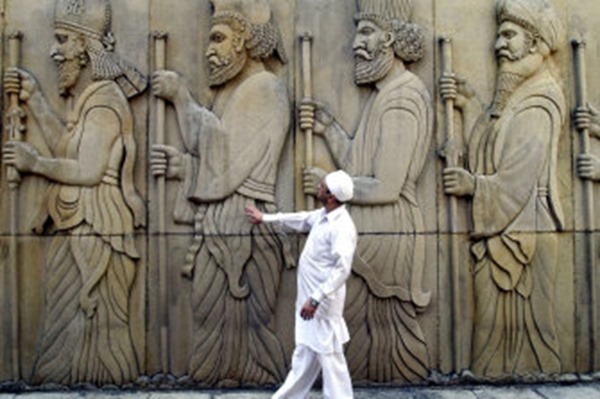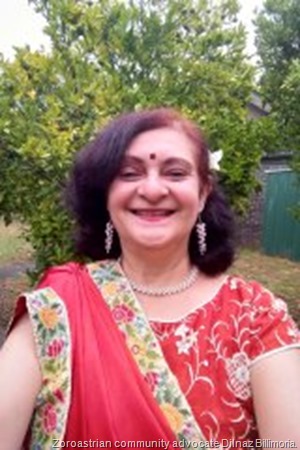My faith is Zoroastrianism, the oldest monotheistic religion in the world, originating in ancient Persia.
The Persian prophet and religious reformer Zarthushta [Zoroaster] is regarded as its founder. It pre-dates the Abrahamic faiths of Judaism, Christianity and Islam and is likely to have influenced those religions too.
Article By Dilnaz Billimoria | The Age
A Zoroastrian priest outside a fire temple in Mumbai, India. CREDIT:AP
Zoroastrians believe in a benevolent deity of wisdom, Ahura Mazda, who sends forth Asha [truth], studied through our important texts, the Avesta. We worship the fire as holy, respect elements of nature and have prayers thanking water, land, flora and fauna for their gifts to us.
Growing up in Mumbai we heard the famous story of “milk and sugar” on the laps of our grandmothers. Following the Muslim conquest of Persia and the fall of the Zoroastrian Sasanid empire in the 7th century AD, Zoroastrians fled their homeland in boats. Many perished and the fortunate few landed in Gujarat, India.
The Rana (king) in Gujarat was generous and provided temporary shelter. However we looked different, spoke a strange language and practised unusual rituals, so the residents politely asked us to leave. But where could my people go?
Our elders asked for a cup of milk and a spoon of sugar, which was dissolved in the milk entirely without spilling a drop. Our message was that we would assimilate in the population, sweeten the country and never spill a drop of blood. Thus began the legend of the Parsis (Persians) who have kept their promises to the land of their adoption, who believe in education, equity and empathy, following the threefold tenets of Asha – Good Thoughts, Good Words and Good Deeds – and perpetuating charity to spread happiness. Our reward is here in this life, helping others.
In a quest for the purity of the Zoroastrian bloodline, conversion into the faith is not allowed. Interfaith marriage is considered taboo. Men marrying outside the faith are allowed to have their children brought up as Zoroastrians with a navjote (baptism) ceremony. When women of our faith marry outside, their children are considered non-Parsis. These man-made laws are not fair to all.
Education is paramount and Parsis are often highly qualified professionals. Their resulting independence has diminished the need for marriage as an institution. All this has sadly led to a sharply dwindling Parsi population, with about 150,000 to 200,000 left worldwide. There are about 600 of us in Melbourne and fewer than 5000 in Australia. Many years ago, I remember threatening to put our young kids out on the nature strip after seeing the mess in their rooms. Our son piped up that they needed to be immensely valued as they were part of the “dying breed of Parsis”!
However few we may be, we are a jolly bunch known to enjoy life. We believe in peace and share a love of music, art and literature. We are connoisseurs of good food and self-appointed fashionistas ready to laugh with others and at ourselves. We burst into song, break into a dance, recreate traditional recipes in Mumbai or Melbourne and our intergenerational love binds families together.
Today we celebrate the Persian New Year. Happy Navrooz!
Dilnaz Billimoria is a community leader, advocate and volunteer.


